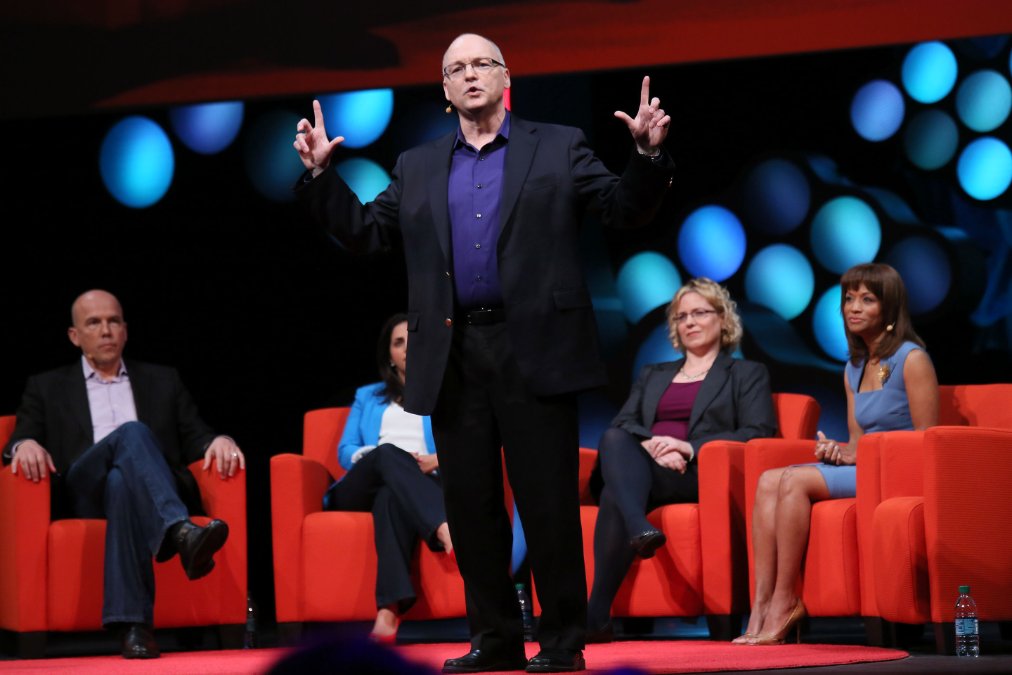So you want to make health care work where you work. OK, you’ve heard the insider’s ideas and seen their big plans – physicians, providers and politicians. But what if the innovative solutions aren’t coming from inside where the status quo prevails? What if the disruptive new ideas for health care are coming from outside just as they do in almost every other industry?
What if the largest consumers of health care decided to fix it for themselves? How would they do it? These are the questions this TEDMED session addresses in a unique format.
Four distinguished panelists from some of the most innovative companies in the world – Google, AT&T, Lockheed Martin and Qualcomm – sit down with me to have a conversation about how their companies are making health care better and new.
In this session, TEDMED panelists discuss what their companies are doing to change health care. Some how-to insights include:
- Google studies of the work environment reveal that people make healthier decisions when they are given more control over food choices, portions and options to exercise. The key is to make them aware of their decision making process.
- AT&T found that by translating medical records into user friendly technology and applications it allows the elderly to better understand their course of treatment. This gives the patient the power to participate in their care and produces better outcomes.
- Lockheed Martin has invested heavily in on-site counseling and basic health care delivery because it found that the on-site services encouraged older male engineers who typically eschew visiting the doctor to get timely advice and treatment. Location and availability of health care had a positive influence on their preventative behavior.
- Qualcomm has developed a way to reliably capture, integrate and deliver all the device data and databases into one seamless stream of information that can be accessed by the patient and provider on demand. With this collected and organized personal data health care providers and consumers can sync up their treatment.
Of course, thirty minutes isn’t nearly enough time to fully explore how to change health care from the outside in. Furthermore, most of these initiatives are essentially experiments and it’s too early to tell what really works and doesn’t.
More so, there are thousands of organizations large and small too numerous to mention here that have developed innovative solutions to the health care crisis. I particularly like the inexpensive smartphone apps and attachments that allow almost anyone to do a physical exam, anywhere, anytime and at a fraction of the current cost. So if the big plans don’t work out as planned, there is reason enough to believe that we can heal ourselves.

Jeff DeGraff is the Dean of Innovation – an author, speaker, and advisor to Fortune 500 companies and mission-driven organizations worldwide. He’s the CEO and Founder of Innovatrium, Founder of Intellectual Edge Alliance, and Clinical Professor of Management and Organizations at the Ross School of Business at the University of Michigan. Jeff co-created the Competing Values Framework and developed the Innovation Code and Innovation Genome methodologies which provide organizations with practical tools to reconcile competing priorities and drive breakthrough performance. His mission is the democratization of innovation: making systematic innovation accessible to everyone, everywhere, every day.
